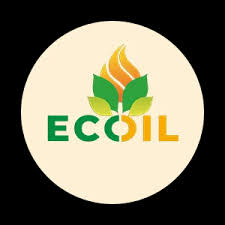Used Cooking Oil: Environmental Impact, Disposal & Sustainable Uses

Strong 8k brings an ultra-HD IPTV experience to your living room and your pocket.
Used cooking oil (UCO) is a byproduct of food preparation that, if not handled properly, can have harmful environmental and health consequences. However, with increasing awareness about sustainability, used cooking oil is now being seen as a valuable resource for alternative applications—from biofuels to industrial products. Used cooking oil, while often discarded, can actually be repurposed in eco-friendly ways—such as biodiesel production or even soap making—but improper disposal can harm plumbing and the environment.Used cooking oil (UCO) is the oil left over after cooking or frying food, commonly found in households, restaurants, and commercial kitchens. While it may seem like waste, used cooking oil has significant environmental impacts and also holds valuable potential for recycling and reuse.
What is Used Cooking Oil?
Used cooking oil refers to vegetable oils (like canola, sunflower, soybean, or palm oil) that have been used for frying or cooking food. Over time, this oil breaks down and absorbs food particles, making it unsuitable for reuse in food preparation. Used cooking oil is any type of vegetable oil—such as sunflower, soybean, palm, or canola oil—that has been used in the preparation of food. During the cooking process, the oil undergoes chemical changes and absorbs food particles, eventually becoming unsuitable for further use in food.
Environmental Concerns of Improper Disposal
Improper disposal of UCO—such as pouring it down the drain or dumping it in the trash—can lead to:
Clogged drains and sewage systems
Oil solidifies and mixes with other waste, leading to blockages.
Water pollution
One liter of oil can contaminate up to 1,000 liters of water, harming aquatic life.
Increased carbon footprint
When not reused or recycled, the energy and resources used to produce the oil are wasted.
How to Dispose of Used Cooking Oil Properly
Cool the oil before handling.
Strain it to remove food particles.
Store in a sealable container (e.g., glass jar or plastic bottle).
Drop it off at a local recycling center or a restaurant with a UCO collection program.
Some cities and municipalities run used oil recycling programs that turn household waste into usable materials.
Innovative Uses of Used Cooking Oil
1. Biodiesel Production
One of the most impactful uses of UCO is in the production of biodiesel—a cleaner-burning, renewable alternative to fossil fuel. Many companies and even home hobbyists process UCO into fuel for diesel engines.
2. Soap and Detergent Manufacturing
Used oil can be converted into handmade soaps, detergents, and even industrial degreasers.
3. Animal Feed & Industrial Lubricants
After proper filtration and treatment, UCO can be used in making animal feed additives and lubricants for machinery.
4. Cosmetic & Skincare Products
Some cosmetic companies use refined UCO in the manufacture of natural creams, lotions, and moisturizers.
Global Efforts & Business Opportunities
Countries in Europe, the U.S., and parts of Asia are encouraging UCO recycling through public policy, private sector investment, and household awareness programs. Startups and green companies are also turning UCO into a profitable commodity, creating job opportunities and promoting sustainability.
With the rise of environmental awareness, used cooking oil has become a valuable commodity in the circular economy. Many countries encourage businesses and households to recycle UCO through incentive programs. Entrepreneurs and companies are also tapping into its potential by setting up collection networks, biodiesel plants, and green product lines.
Conclusion
Used cooking oil should no longer be considered just waste. With the right disposal practices and innovative uses, it becomes a valuable resource in the global push for sustainability. Whether you're a homeowner, restaurant, or industrial kitchen, proper management of UCO can help protect the environment and even contribute to the circular economy.
Note: IndiBlogHub features both user-submitted and editorial content. We do not verify third-party contributions. Read our Disclaimer and Privacy Policyfor details.







